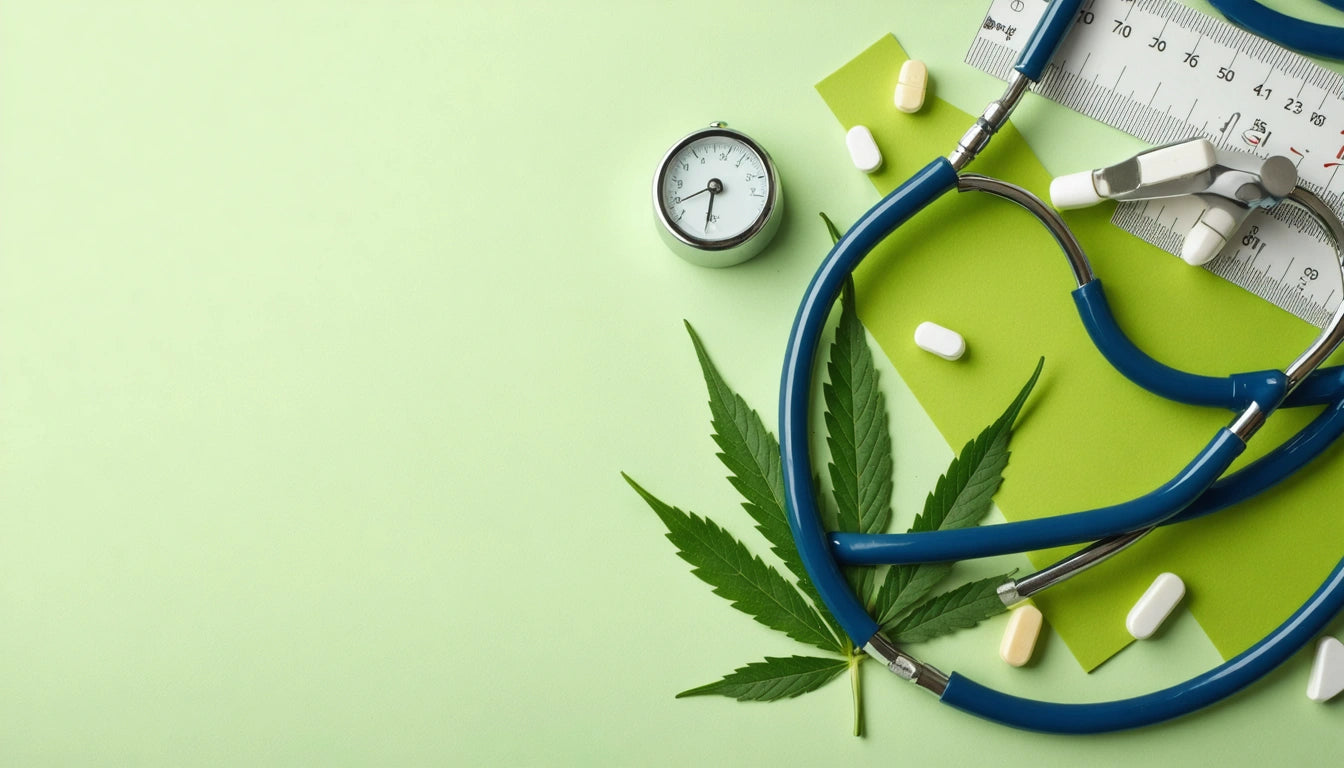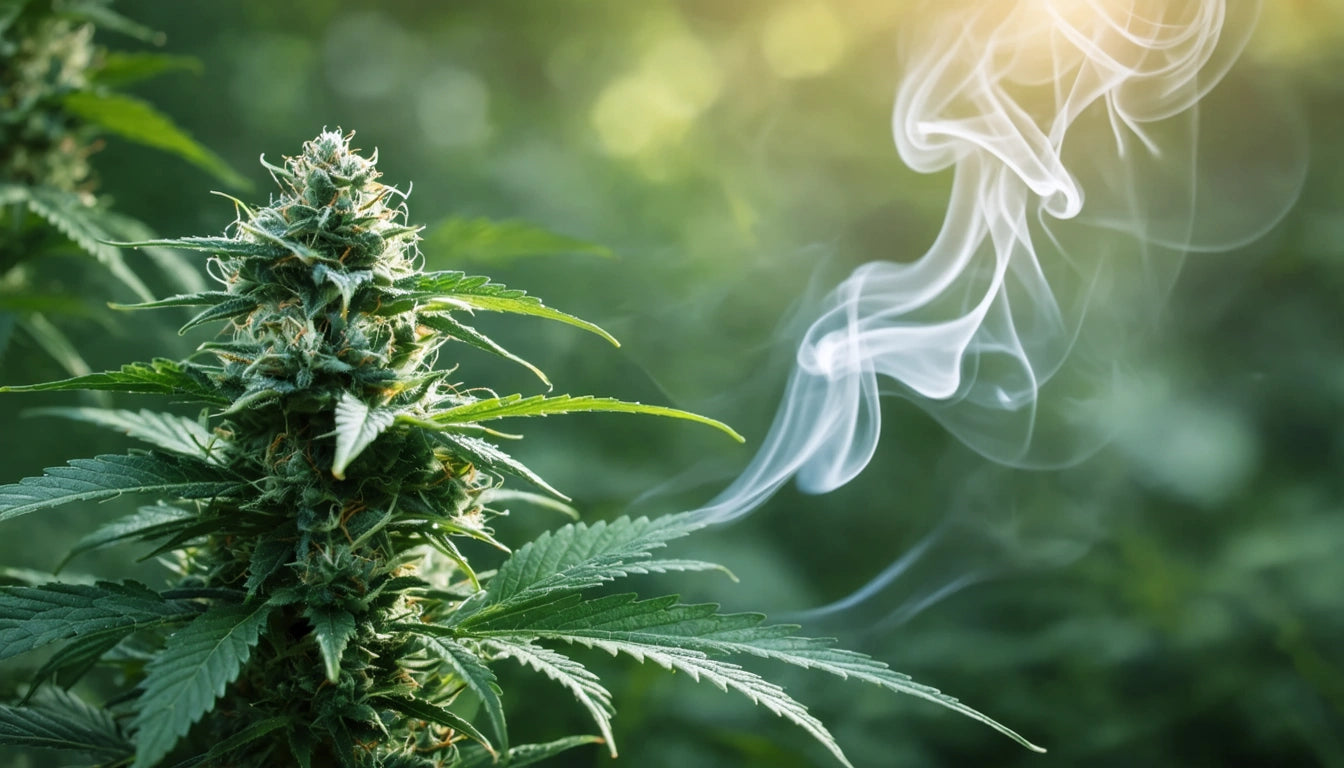The Impact of THC on Blood Pressure: Raising or Lowering Effects?
The relationship between THC and blood pressure is complex and often misunderstood. As cannabis becomes more widely accepted both medicinally and recreationally, understanding how THC affects blood pressure has become increasingly important for consumers and healthcare providers alike.
Understanding THC and the Cardiovascular System
THC (tetrahydrocannabinol) interacts with the body's endocannabinoid system, which plays a role in regulating various physiological processes, including cardiovascular function. When THC enters the bloodstream, as explained in this detailed breakdown, it binds to cannabinoid receptors throughout the body, including those in blood vessels and the heart.
These interactions can trigger several cardiovascular responses, including changes in heart rate and blood pressure. The endocannabinoid system's CB1 and CB2 receptors, when activated by THC, can influence vasodilation (widening of blood vessels) and cardiac output, both of which directly impact blood pressure levels.
Does THC Raise Blood Pressure?
The question "does THC raise blood pressure" doesn't have a simple answer. Acute or initial THC exposure typically causes a temporary increase in blood pressure. This effect is most pronounced during the first few minutes after consumption and is often accompanied by an increased heart rate, as detailed in this heart rate analysis.
Several factors influence whether THC will raise your blood pressure:
- Dosage: Higher doses generally produce more pronounced cardiovascular effects
- Individual tolerance: Regular users may experience less dramatic changes
- Consumption method: Inhalation typically causes more rapid effects than edibles
- Strain and composition: THC-dominant products may affect blood pressure differently than balanced THC/CBD formulations
Does THC Lower Blood Pressure?
While initial use may cause a spike, the question "does THC lower blood pressure in humans" also has merit. Following the initial increase, many users experience a decrease in blood pressure as the effects continue. This reduction is often associated with the relaxation and sedation commonly reported during cannabis use.
Long-term or chronic cannabis users may experience different effects than occasional users. Some research suggests that regular cannabis consumption might lead to a decrease in resting blood pressure over time, though this area requires more clinical investigation.
For those wondering "can THC lower blood pressure" in a therapeutic context, some preliminary research suggests potential applications for hypertension management, though this remains experimental and should not replace conventional treatments without medical supervision.
Biphasic Effects Explained
The seemingly contradictory effects of THC on blood pressure can be explained by its biphasic nature. THC often produces opposite effects depending on dosage, timing, and individual factors. This biphasic response is why many users report that THC can both raise and lower blood pressure.
The typical pattern observed is:
- Initial phase: Brief increase in blood pressure and heart rate
- Secondary phase: Gradual decrease in blood pressure as other effects set in
- Extended use: Possible development of tolerance to cardiovascular effects
These varying responses explain why the question "does THC raise or lower blood pressure" doesn't have a one-size-fits-all answer.
THC and Blood Pressure Medications
For individuals managing hypertension, understanding "does THC affect blood pressure medications" is crucial. THC can potentially interact with various blood pressure medications, either enhancing or diminishing their effects. This interaction occurs because both THC and many blood pressure medications are metabolized by the same liver enzymes.
Potential interactions include:
- Enhanced effects of blood pressure medications, potentially causing hypotension
- Reduced effectiveness of certain medications
- Unpredictable blood pressure fluctuations
Anyone taking blood pressure medication should consult their healthcare provider before using THC-containing products. When discussing cannabis use with healthcare providers, proper storage and handling of products is also important, with many professionals recommending secure storage solutions like mylar bags to maintain product integrity and prevent accidental exposure.
Consumption Methods and Blood Pressure Effects
How THC affects blood pressure can vary significantly based on consumption method. Different intake methods result in varying absorption rates, bioavailability, and onset times, all of which influence cardiovascular effects.
Inhalation (smoking or vaping):
- Rapid onset of effects (within minutes)
- More pronounced initial increase in blood pressure
- Shorter duration of effects
Oral consumption (edibles, tinctures):
- Delayed onset (30 minutes to 2 hours)
- More gradual changes in blood pressure
- Longer-lasting effects
Topical application:
- Minimal to no significant effect on blood pressure
- Primarily localized effects
Understanding these differences helps consumers make informed choices about how they use cannabis products, especially if they have concerns about how THC might affect their blood pressure.
Research and Clinical Perspectives on THC and Blood Pressure
Scientific research on how THC affects blood pressure continues to evolve. While some studies suggest potential benefits for certain cardiovascular conditions, others highlight risks, particularly for individuals with pre-existing heart issues.
Current research indicates that the effects of THC on blood pressure may be influenced by:
- The endocannabinoid system's role in cardiovascular regulation
- Individual genetic factors affecting cannabinoid receptor sensitivity
- Age and overall cardiovascular health
- Concurrent use of other substances
For those interested in how THC impacts overall health beyond blood pressure, this comprehensive overview provides additional insights into THC's broader physiological effects.
As research continues, our understanding of whether THC raises or lowers blood pressure will become more nuanced, potentially leading to new therapeutic applications while helping consumers make safer choices about cannabis use.











Leave a comment
All comments are moderated before being published.
This site is protected by hCaptcha and the hCaptcha Privacy Policy and Terms of Service apply.